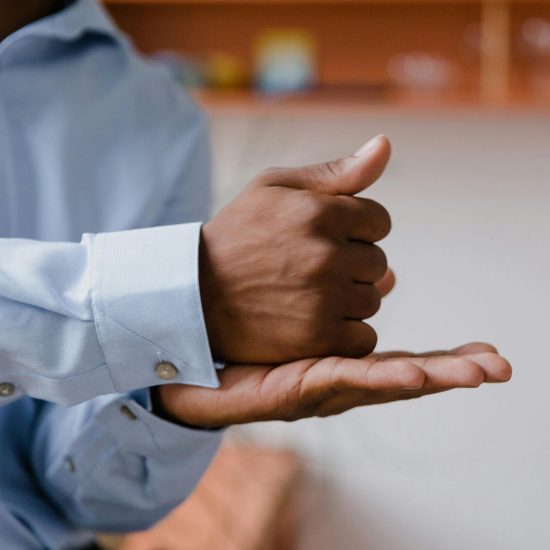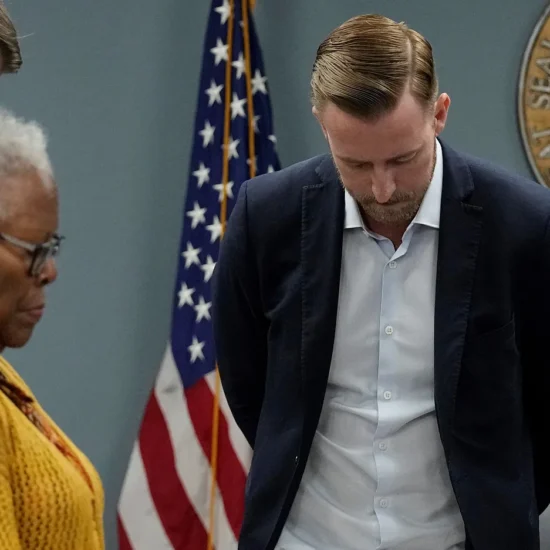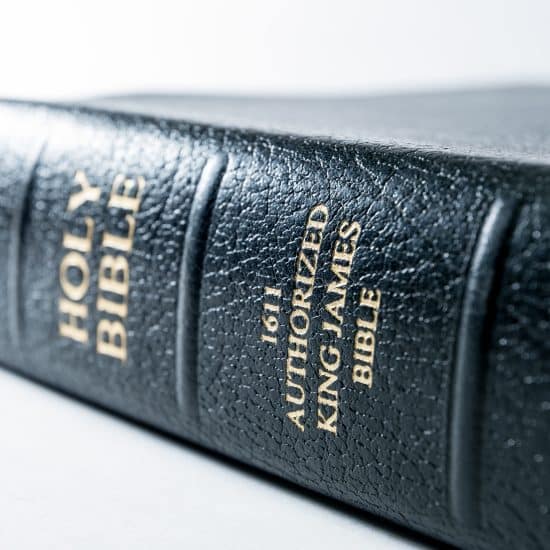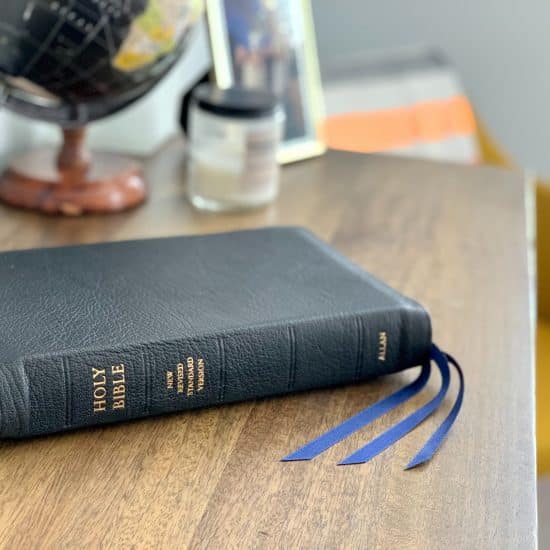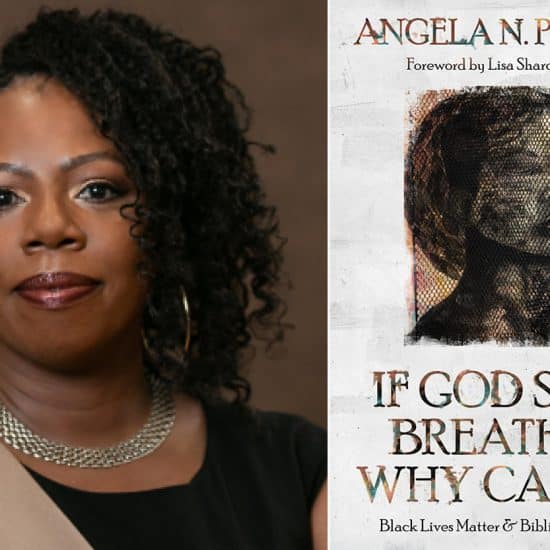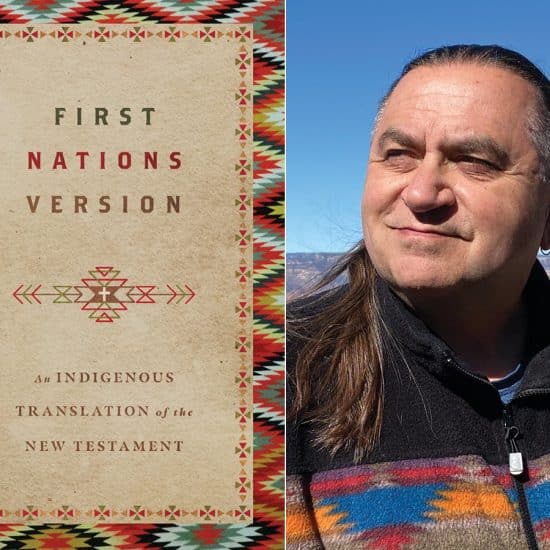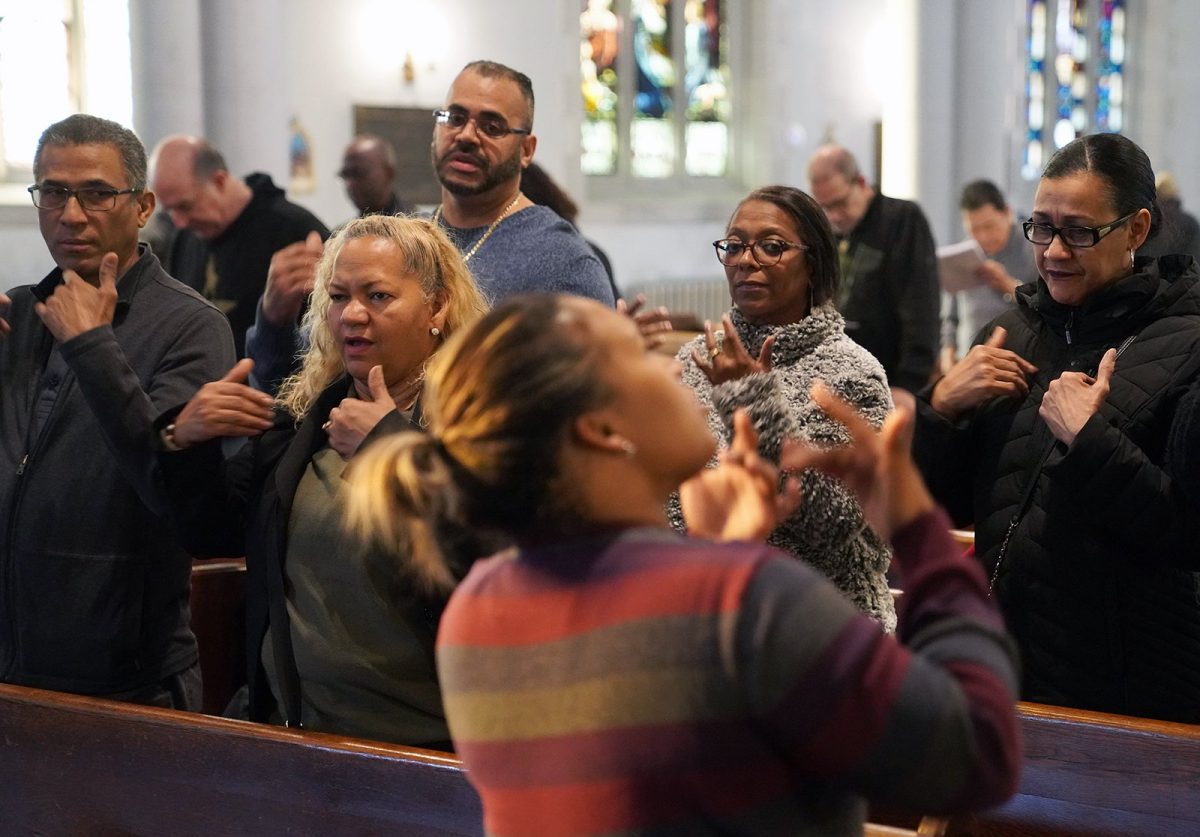
(RNS) — The Christian hearing community naturally emphasizes the spoken word, whether through singing worship or reading from the pulpit, and often highlights the various ways one can “hear” God. Study groups are formed to read Bible passages and to discern how to listen for God.
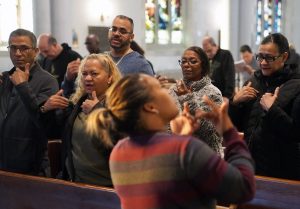
Deaf worshippers sign a hymn while following sign language interpreter Diely Martinez at Holyrood Episcopal Church-Iglesia Santa Cruz in New York City on Dec. 15, 2019. (Emily Leshner/Associated Press)
Although more churches are using sign language interpreters, they’re still few and far between. This all contributes to the surprising fact that until only a few months ago, millions of American churchgoers have been without access to a fully translated version of the Bible in their native language.
After nearly four decades of work led by Deaf Missions and collaborations between American Bible Society, Wycliffe Bible Translators USA, Deaf Harbor, DOOR International, Seed Company, Pioneer Bible Translators, and the Deaf Bible Society, the Bible was completely translated from original sources into American Sign Language last September.
Deaf people rely on tangibility and their eyesight to navigate and communicate with the world; this can make learning to read difficult as words and concepts are conveyed differently. To help deaf Christians feel the richness of biblical stories, the ASL translation team recorded a series of videos broken up by Bible chapters or passages with someone signing the text. This American Sign Language Version Bible utilizes the distinct and dynamic vocabulary of sign language to bring Scripture to life in an entirely new way.
“Even though I have access to multiple translations and have studied in seminary,” said Pastor Josh Bonjour, lead pastor of New Life Deaf Fellowship in Fort Worth, Texas, who is hearing but grew up with deaf family members and in the deaf community. “Sometimes seeing a passage of Scripture signed makes it click in a way that it never has before. If that happens for me, as a hearing person, imagine what it does for the deaf.”
While he was in college, he worked as the student minister at his father’s church, Amarillo Deaf Church in Amarillo, Texas.
“In the Bible Belt, where everyone has at least a basic framework for understanding the Bible just because it’s part of the culture. However, this was not true among the deaf students we began reaching out to,” said Bonjour. “Whether or not they grew up in a church with their family, the chances were that the deaf students had a minimal or very muddied understanding of the story of the Bible and of who Jesus was, because they hadn’t had the same access to the gospel as others who were hearing.”
There are an estimated 11 million deaf or hard-of-hearing people in America, and while strides have been made toward inclusivity in the modern era, like utilizing translators and closed captioning, the bestselling book in history had not been fully available until last year.
Bonjour put the magnitude of this translation into perspective: “Imagine discipling a group of new believers who don’t have access to a Bible in their own language. That was the challenge we faced. I would tell students to just try their best to read and understand the Bible, even to read a comic book Bible if it helped, but they would come back disheartened and with a feeling that God’s word was hard and that it wasn’t for them.
“That was tough. And that issue wasn’t confined to youth groups. It persisted among deaf believers as a whole,” he added.
Most importantly, Bonjour points out this milestone is the beginning of a new era for the deaf Christian community and for generations to come.
“One of my deepest prayers is that this work would not be checked off as ‘completed’ with the completion of the ASLV but that it would continue for years to come — that we would see revisions, new translations and study tools continue to come out so that the deaf would be able to enjoy the riches of God’s Word,” he said.
This is our prayer at American Bible Society too.
During National Deaf History Month, which runs March 13 to April 15, we celebrate this monumental achievement and continue our work in translating the Bible into every living language — including an additional 275 global sign languages. Christians have read the Bible for centuries, hearing God’s words to them. Now deaf communities know that God has a message to sign to them too.
Robert L. Briggs is president and CEO of the American Bible Society.

